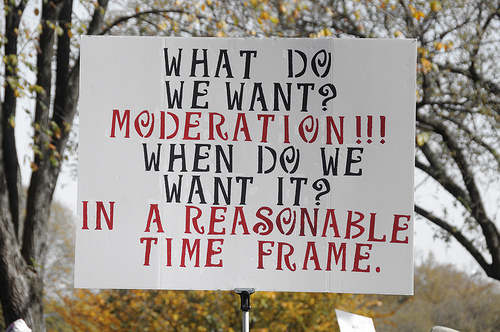The Belgian Government has announced its intention to draft a ‘digital agenda’ for the coming years. This is an opportunity for the Belgian startup community to establish a shortlist of its needs and priorities, in order to make Belgium a better ecosystem for startups to blossom and grow. At the initiative of a small committee, a ‘Belgian Startup Manifesto’ is currently being crowdsourced (you can read the whole story here and some interesting contributions here, here, here and here).
I am not myself a techie, but I have a pretty good view on legal challenges faced by startups, plus I have recently co-founded a small law firm, which gave me a few insights that I’m willing to share (in no order of precedence).

A manifesto – but a very constructive one
1. DO teach programming at school
A bit of programming is useful. For everyone. Even as a law student (not the most technical subject), I found it very useful to have some basic programming skills, because it is an excellent training for categorization, logic, precision, etc., and these skills are useful for pretty much everything. Plus, programming is fun, and there is some magic in building a program that you can see working alone afterwards. Not enough teachers have programming skills themselves nor are able to teach it. Not enough students are taught to code (in fact, only those opting for strong math/science options). In my opinion, we should urgently discuss the inclusion of basic computer science in every school program (instead of putting so much emphasis on religion, for instance).
2. DON’T subsidize
In Belgium, people are paying high taxes and have opportunities to get some money back in the form of subsidies. This is very inefficient. Yes, there has been some efforts (at least in the Walloon Region, I don’t know for the other parts) to simplify the system, regroup the different stimulation agencies, etc. It is working better, but is still a broken system. Subsidization means a lot of paperwork where you could use your time more efficiently. Subsidization means bad allocation of resources (if you prioritize subsidized investments over more useful investments), or unwanted modifications of your business model in order to fulfill some conditions. Subsidization means an important part of the overall budget is sucked by the administrative management of the subsidies system itself, not mentioning the controls over how money is spent. And subsidization leads to absurd situations where you get subsidies to hire consultants helping you to obtain other subsidies.
Subsidies help politicians showing they are « doing » something (which is easier to sell than not taking the money on the first stage). They help intermediaries of different kinds, whose added value would be close to none without a system of subsidies. Subsidies do not, in the overall, help startups (or let’s just say that there are way more efficient systems to help them).
3. DO bridge the gap between unemployment and self-employment
Everyone is aware of the high unemployment rates in Belgium, especially concerning young people. Here is the trick : people benefiting from an unemployment grant are supposed to seek a job – which means seeking to be employed by someone – and nothing else. This principally means 1) restrictions on unpaid activities and 2) no creation of your own business or you could lose your grant. You should read the very interesting story of Lionel here and here, about a training he followed on « creating your own business » at an official unemployment agency (FOREM), where he learned how much trouble you can get in by trying to set up your own activity.
In the current situation, there is virtually no transition between benefiting from an unemployment grant (which means being granted a few hundred euro per month, apart from other benefits) and registering as a full-time self-employed (which means amongst others receiving no grant anymore, paying around 700 euro per quarter of social security contributions, and losing the right to future unemployment grants). Better be sure of yourself when you switch from one to another. Certain hybrid regimes exist, I’m thinking about Smartbe for artists, which is used with great success. They could and should be extended.
4. DO reduce the price of hiring people….
I don’t think hiring/firing people needs more flexibility – the notice period to terminate employment has been recently reduced and a few weeks notice must be manageable. The real problem is the price of hiring people : tax cuts and social security contributions amount to approx. 55% of the brutto salary paid by the employer, not to mention side costs (like outsourcing of salary calculation, don’t ever try to do it self). And, quite obviously, you must guarantee the payment of salaries, whether your business is doing well or not. Government plans to help employment are heavily targeted at long-term unemployed and unqualified people, which create market distortion and is not useful for startups.
You must be absolutely sure that your business has reached a certain stage before thinking of employing people. Ironically, those people would probably have been very useful to help you reaching that stage.
5. …and/or DO make it easier to work with freelancers
Contrary to certain other contributors, I am not convinced that startups need a new status or company form. I would rather put the emphasis on facilitating the collaboration between startups and self-employed (or between self-employed people within a startup). Self-employed may agree on flexible arrangements regarding working time and volumes, the cost for hiring them is contained (social security contributions are lower), they can easily share their time between different startups/projects, etc. There are, however, two obstacles :
- freelancers working for a single company are looked at suspiciously under Belgian law and fines could be very high (phenomenon of « false » self-employed) ;
- the (absence of) link between self-employment and unemployment grants (see point 3), means you have no right to fail.
I have the feeling than making it easier for startups ans small companies to work with freelancers would be much more efficient than trying to modify employment laws (which would be very, very long and complicated).
6. DO create a few tax incentives
My personal preference would go toward a much more simple tax system, where tax rates are much lower and incentives or special regimes are virtually inexisting. It is however not going to happen in one day. In between, a few tax incentives targeted at startups could make no harm, especially 1) a tax regime favorable to venture capital and 2) favorable taxation of R&D activities and/or IP revenues (existing at the moment, but too restricted and not accessible to very small companies).
Like it or not, Luxembourg is just next door and has plenty of taxes advantages to offer.
7. DON’T think not taking money equals losing money
Favorable taxation or tax exemptions are too often talked about as « fiscal losses ». They are not. Stop assuming that you would have obtained tax money in the absence of such exemption. To some extent, startups are asking for favorable regimes regarding tax and social security contributions in order to exist and to grow. An actual economic activity paying limited amounts of taxes is still more « profitable » for public finances than a non-existing activity subject to full-rates taxes. And any savings on unemployment grants should be welcome.
8. DO create a common framework
Belgium is a federal State with multiple levels of government, which must be respected. A digital agenda setting up high level priorities for developing the digital economy makes however little sense if it is not agreed upon by all entities. Geographic divisions are not so relevant for the digital economy. My company is incorporated in Brussels, whereas I am finishing this article in a shared office in Flanders and working regularly on the Walloon soil. Regional differences are fine when justified, but a digital worker is mobile by nature – mostly needing a laptop – and is not willing to accommodate to 3 materially different legal regimes while travelling 50 km.
9. DO welcome qualified foreigners
Qualified foreigners willing to join a startup or to create one should be welcome, not looked at suspiciously and overloaded with paperwork. No exception. Startups will work with them anyways (all they need is an internet connection), and our economy needs talents and young blood (remember the aging pyramid ?).
